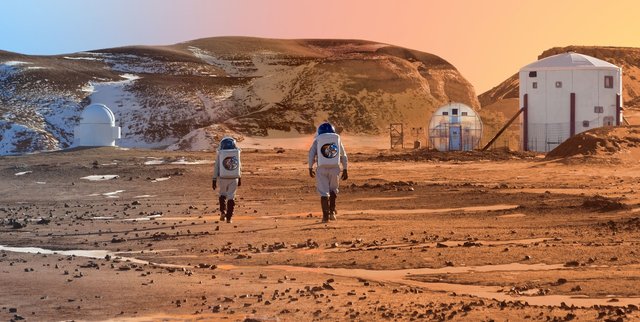After a year pretending to be on mars, NASA's scientist are back home
Talk about cabin fever. Six scientists returned to human civilization on Sunday, after spending a year isolated on a dormant Hawaiian volcano to simulate the conditions astronauts could face on Mars.

The mission, funded by NASA, was the fourth one organized by the Hawaii Space Exploration Analog and Simulation program, or HI-SEAS. The six crew members lived in a 1,200-square-foot dome, venturing outside to “explore” the Mauna Loa volcano—aka Mars—only while wearing space suits.
ARGUABLY ONE OF the most Mars-like environments on Earth, the north side of Mauna Loa has been home sweet home to six NASA crew members for the last year. Inside a dome-shaped structure, they were living out the latest in a series of NASA-operated missions designed to inform spaceflight: Operation HI-SEAS, for Hawaii Space Exploration Analog and Simulation. The mission was designed to study the psychological impact of long-term space travel by sticking the crew in a confined environment with the same people. Who would voluntarily sign on for that still isn’t clear.They even suffered through a 20-minute delay every time they communicated with their mission support team, waiting for the messages to travel through “space.”
"It is kind of like having roommates that just are always there and you can never escape them," mission commander and soil expert Carmel Johnston. "So I'm sure some people can imagine what that is like, and if you can't then just imagine never being able to get away from anybody," she said.

Despite these challenges, it certainly sounds like boredom was the biggest concern during the length of the mission.But it wasn't all bad :
"I'm a military brat, I grew up with my dad in the Air Force, and where you live becomes home after a while, and I'm going to miss the place," Andrzej Stewart.
The University of Hawaii is accepting applications for the next mission, which will start in 2017 and you have about week to apply.
So would you be interested in living on mars?
Don't forget to follow @shubham1696
And upvote if you really liked the post.
Please cite your sources from which your article is very very inspired!
We're making progress already!